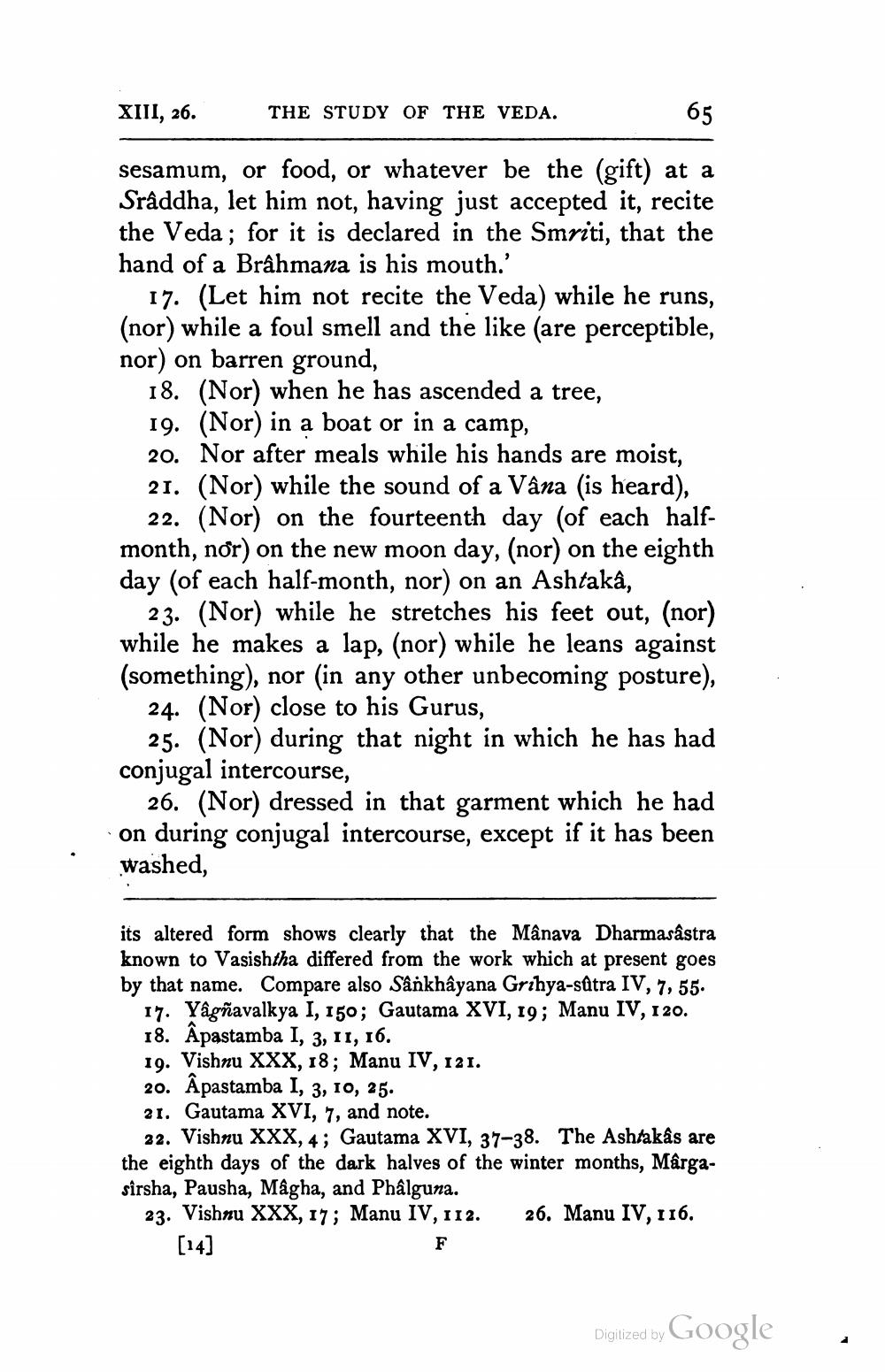________________
XIII, 26.
THE STUDY OF THE VEDA.
65
sesamum, or food, or whatever be the (gift) at a Sraddha, let him not, having just accepted it, recite the Veda; for it is declared in the Smriti, that the hand of a Brâhmana is his mouth.'
17. (Let him not recite the Veda) while he runs, (nor) while a foul smell and the like (are perceptible, nor) on barren ground,
18. (Nor) when he has ascended a tree, 19. (Nor) in a boat or in a camp, 20. Nor after meals while his hands are moist, 21. (Nor) while the sound of a Vâna (is heard),
22. (Nor) on the fourteenth day (of each halfmonth, nor) on the new moon day, (nor) on the eighth day (of each half-month, nor) on an Ashtaka,
23. (Nor) while he stretches his feet out, (nor) while he makes a lap, (nor) while he leans against (something), nor (in any other unbecoming posture),
24. (Nor) close to his Gurus,
25. (Nor) during that night in which he has had conjugal intercourse,
26. (Nor) dressed in that garment which he had on during conjugal intercourse, except if it has been washed,
its altered form shows clearly that the Mânava Dharmasastra known to Vasishtha differed from the work which at present goes by that name. Compare also Sânkhâyana Grihya-sâtra IV, 7, 55.
17. Yagñavalkya I, 150; Gautama XVI, 19; Manu IV, 120. 18. Apastamba I, 3, 11, 16. 19. Vishnu XXX, 18; Manu IV, 121. 20. Âpastamba I, 3, 10, 25. 21. Gautama XVI, 7, and note.
22. Vishnu XXX, 4; Gautama XVI, 37-38. The Ashtakâs are the eighth days of the dark halves of the winter months, Märgasirsha, Pausha, Mâgha, and Phâlguna.
23. Vishnu XXX, 17; Manu IV, 112. 26. Manu IV, 116.
Digitized by Google




